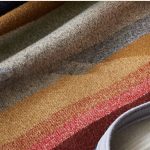By next fall, Patagonia will expand its participation in the Fair Trade Certified program to more than 300 styles, or a third of its products, including its popular Synchilla Snap-T fleece, according to President and CEO Rose Marcario.
The company plans to expand the program to new factories in India, Thailand, Colombia, Vietnam, Nicaragua and Mexico, Marcario wrote in an Oct. 10 entry in The Cleanest Line, a widely followed company blog.
Patagonia pays a premium for every garment is sources through the Fair Trade Certified program. The money goes into an account controlled by a democratically elected Fair Trade worker committee that decides how the funds will be used. Committees have used the money to pay for social, economic and environmental community projects, including private health care and child care centers. They’ve also opted to pay it out in cash bonuses to help workers earn closer to a living wage.
Patagonia has scaled its Fair Trade program from one factory and 11 styles in fall 2014 to six factories and 218 styles in fall 2016. Since 2014, Patagonia has paid $639,000 in premiums that go directly to the workers making its apparel.
“We started small in fall 2014, with 10 yoga styles at Pratibha Syntex in India,” Marcario wrote in her blog entry. “This worked well enough that we could grow the program to 33 styles the following spring, then to 192 last fall. We have now paid out collectively over $430,000 to more than 7,000 workers.”
“We live in the age of globalization and factory workers around the world are going to be plugged into the global market in one way or another, and so for me, the question is, are they victims of the global market, or are they being included in the benefits of globalization?” Said Paul Rice, president and CEO of Fair Trade USA. “We have to prove the business case for responsible business. If it’s just a philanthropic endeavor…it won’t scale. We have to prove that Fair Trade is good for business.”
In Patagonia’s mission to use business to do good and lead the way for transparency in the outdoor industry, it is making it easier for other apparel companies to make products in Fair Trade Certified factories. Once a factory is certified, any other company that wants to make Fair Trade products in that factory simply has to pay the additional Fair Trade premium.
“Fair Trade USA’s approach has proven it contributes to a better standard of living, including pay and employee participation in the workplace and community. It also helps create better working-conditions and safeguards against the use of child labor,” stated Marcario. “One last benefit falls not to the workers, the factory or Patagonia as a brand, but to the customer who buys a Fair Trade Certified garment: every purchase is a vote, with the pocketbook, for good values, an all too rare opportunity in our global economy.”















